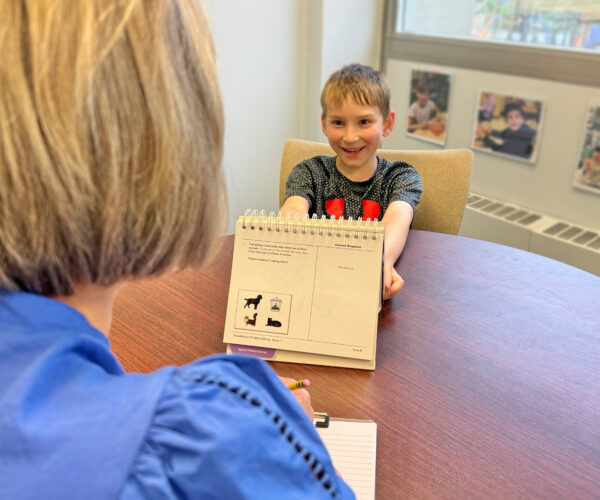
Summer and the Student with LD/ADHD: Time to Plan Ahead
March 28, 2018
Helping Students Cope with Anxiety
April 11, 2018
Every student has experienced stress, mild anxiety or fear. A project due date is creeping up, pressure is increasing and the student begins to feel stress.
Mild anxiety or stress can provide the motivation to get started and put aside other more engaging pursuits. The student experiences a sense of relief as the project comes together.
Of course, if the project is due tomorrow and nothing has been done, the student will appropriately experience more anxiety than a peer who started earlier. Parents of this student will also be anxious! It is normal for a student to have a sleepless night because of an exam or a big presentation. It is also normal for a student to be anxious when she knows she did not do an adequate job on the project because she started late. When the challenge is met, the student goes back to her usual sleep habits.
Anxiety also helps children exercise caution in unfamiliar situations. In the grocery as a child looks around, he makes certain to keep a parent in his line of vision. If a child lacks confidence when riding a 2-wheeled bike, he would avoid riding off a ramp in the park. If there is a new babysitter, the student would be appropriately concerned if he had not met the person in advance of parents’ leaving. Most parents would be okay dealing with any of these scenarios.
Students with LD/ADHD can experience a level of anxiety throughout a typical school day! Even if she is prepared, the wording on a test might be misinterpreted. She makes small errors in math problems, even though she understands the concepts. A needed resource gets left behind at school. She does well in physical education class, but does not understand what the teacher said and gets “yelled” at. She reads the wrong chapter for class. All of this is part of a normal day for the student with LD/ADHD. Still, most students get up every day and go to school, although sometimes parents offer incentives to help get over a rough patch.
When does low-level anxiety become too much? Basically, normal anxiety moves into a different category when the student exhibits frequent, excessive emotional reactions, and the emotion interferes with daily life.

Screaming, crying, kicking when it is time to go to school or do homework should be a sign to adults that something is wrong. Frequent calls from the school nurse’s office because the student is sick and there is nothing physically wrong is a warning sign. Refusing to ride the school bus or to go to a good friend’s house should prompt adults to investigate the situation. School refusal behavior, bus issues and a change in attitude toward a friend may not be related to academics, but to a management or social issue on the bus or in the friend’s home.
My next blog post will address what a parent can do to help a child manage his anxious feelings.
Blogger Mary Ann Mulcahey, PhD, shares her expertise in assessment and diagnosis of learning disabilities and ADHD, and the social/emotional adjustment to those issues. If you have questions, please contact Mary Ann at .



